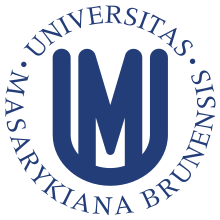 401-500
401-500 


Masaryk University, established in 1919 and located in Brno, Czech Republic, is a key leader and influencer in higher education in Central Europe. At present, Masaryk University offers over 600 degree programmes and strives to be a university with an internationally respected scientific profile and research results visible on a European scale. Owing to its unprecedented success both in national and international competitions for research grants in the past years, Masaryk University has been able to invest considerably into infrastructure, primarily a new campus complex opened in Brno in 2010, with the ambition to combine high-quality teaching with original research in state-of-the-art facilities. See the offical Masaryk University video: https://www.youtube.com/watch?v=spvxXFucTO8 MU offers all degrees of university education covering the full spectrum of areas: · Arts and Humanities (Faculty of Arts) · Clinical, Pre-clinical and Health (Faculty of Medicine, Faculty of Sports Studies) · Engineering and Technology, Computer science (Faculty of Informatics) · Life Sciences (Faculty of Science) · Physical Sciences (Faculty of Science) · Social Sciences (Faculty of Social Studies, Faculty of Education, Faculty of Law, Faculty of Administration and Business) World-class research at MU: Biochemistry and molecular biology Cancer research (e.g. leukaemia) Plant sciences Stem cell research and developmental biology Environmental chemistry Structural biomolecular research and protein engineering Theoretical physics Mathematics Zoology Social sciences Computer science The above research areas are concentrated in several entirely new research centres: · Central European Institute of Technology (CEITEC): The major scope of the project is to establish an internationally acclaimed centre of research and education. State-of-the-art technologies facilitate the study of both biotic and abiotic components of the environment on all currently available levels of complexity, ranging from single atoms to molecules to molecular complexes or cells to entire organisms – including humans. · Centre for the Study of Toxic Substances (CETOCOEN): The project provides a unique platform interconnecting scientific research and the commercial sector in areas associated with environmental and sustainability issues and focuses on the development of chemical and toxic tools designed to monitor the quality of the environment. This platform serves as a link between primary research and practical implementation; the Centre is therefore able to react to the needs of the academic sphere, public administration, industry, health services and the public, while exerting a considerable influence with respect to issues such as environmental protection, sustainable development and human health. · Centre for Experimental, Systematic and Ecological Biology (CESEB): Four cutting-edge research facilities provide the necessary background for both teaching and research activities conducted by two departments of the Faculty of Science: Department of Experimental Biology and Department of Botany and Zoology. In addition to enhancing the quality of teaching, the project is beneficial to all fields of the Biology programme, especially as it successfully merges the facilities of two separate departments, thus contributing to a more efficient transfer of information. · Centre for Education, Research and Innovation in ICT (CERIT): The newly built facilities housing the CERIT project were designed to incorporate a science and technology park with a state-of-the-art data centre, thus supporting closer cooperation between the ICT sector and the industry. · R&D Centre for Low-Cost Plasma and Nanotechnology Surface (CEPLANT): The project is designed to launch highly-focused applied research into plasma sources and plasma processing development, strategically targeting industrial end-users. · Loschmidt Laboratories The part of the Faculty of Science, that deals with protein engineering. The research group already holds several patents for three inventions; the latest one was awarded in 2014 in the USA for a new method of protein stabilization towards organic solvents. The Loschmidt Laboratories also gave rise to the founding of the first Masaryk University biotechnological spin-off, Enantis, and a software company CaverSoft.
 401-500
401-500 
| Subject | Rank |
|---|---|
Geography | 151-200 |
Ecology | 201-300 |
Biological Sciences | 201-300 |
Veterinary Sciences | 201-300 |
Law | 201-300 |
Mathematics | 301-400 |
Environmental Science & Engineering | 301-400 |
Biotechnology | 301-400 |